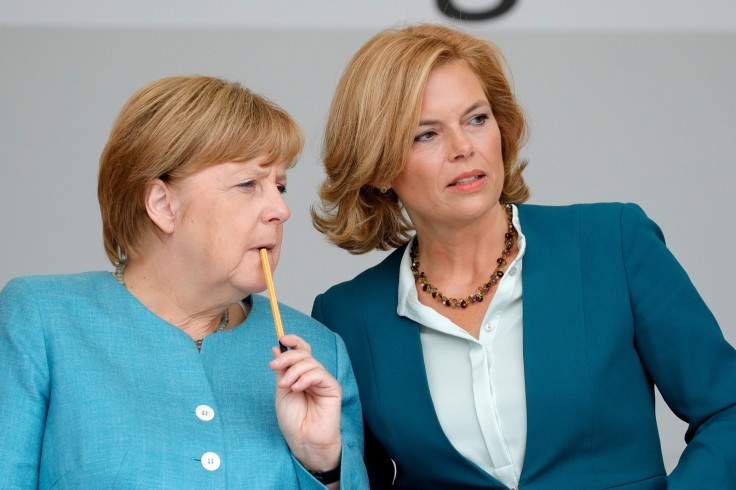Merkel ally says website hit by thousands of cyberattacks from Russian IP addresses ahead of election
"Today a massive hacking attack on my homepage - with greetings from Russia," CDU vice chairman Julia Kloeckner tweeted.
The vice chairman of German Chancellor Angela Merkel's conservative party Christian Democratic Union (CDU) said on Monday (4 September) that her website was recently hit with thousands of cyberattacks, many of which came from Russian IP addresses. Julia Kloeckner said the political website was the target of about 3,000 attacks ahead of the television election debate between Merkel and her Social Democratic rival Martin Schulz on Sunday, Reuters reports.
"Many of the senders have Russian IP addresses," Kloeckner said, adding that the party's headquarters in the state of Rhineland-Palatinate also suffered "massive attacks" before the televised debate.
In a tweet on Sunday, Kloeckner wrote in German: "Today a massive hacking attack on my homepage - with greetings from Russia. [As] if this has something to do with the election."
She did not specify any details regarding the type of cyberattacks or how they were discovered.
A CDU spokesperson said around 3,000 emails allegedly requested unauthorised access to the administrator rights of Kloeckner's website and were likely sent from a Russian server, Politico reports.
A spokesman for Germany's federal cybersecurity agency BSI said they were aware of the attacks and were in contact with CDU's headquarters.
German officials and intelligence agencies have previously warned that Moscow could seek to interfere in the upcoming national election on 24 September in which Merkel is expected to win a fourth term.
Heute massive Hackerangriffe auf meine Homepage - mit Grüßen aus Russland. Ob das was mit der Wahl zu tun hat ...
— Julia Klöckner (@JuliaKloeckner) September 3, 2017
In July, Interior Minister Thomas de Maiziere said confidential documents and data stolen from the German parliament in the 2015 cyberattack could possibly be leaked ahead of the elections in an attempt to undermine democracy and government officials.
Hans-Georg Maassen, the head of Germany's BfV intelligence agency, said earlier that he suspected Russian President Vladimir Putin would prefer a different German chancellor to Merkel. BfV's recent annual report also said cyberattacks have become a growing threat for Germany with hackers targeting the chancellery, its foreign ministry and embassies, finance and economic ministries and the German military.
Last year, the BfV cited a "striking increase" in Russian propaganda, disinformation campaigns as well as spear-phishing attacks targeting German political parties, politicians and think-tanks that have been linked to APT 28 - a Russian hacking collective also known as Fancy Bear or Strontrium. The Kremlin-linked group has also been accused of hacking the DNC in 2016 and the German parliament in 2015.
Many European countries have shored up their own cyber defences against cyberattacks after French President Emmanuel Macron and US Democratic candidate Hillary Clinton's presidential campaigns were hit by cyberattacks. In recent months, numerous European officials have also reported cyberattacks targeting their own infrastructure including those from Germany, Ukraine, Norway, Bulgaria, Austria, Czech Republic and Italy.
The Kremlin has repeatedly denied any any involvement in the cyberattacks or attempts to influence foreign elections.

© Copyright IBTimes 2025. All rights reserved.





















